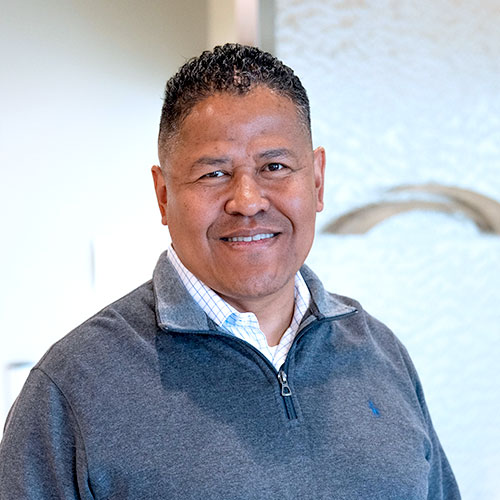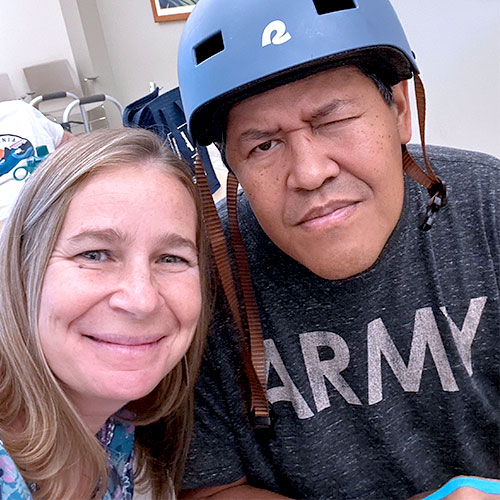Doctor Learns New Perspective After Stroke

Former CNS patient Dr. Michael (Mike) Petersen – an Austin-based medical expert with over 20 years of health industry experience – suffered a stroke in June 2023, which has reshaped his perspective on life. Mike accepted a new position as Chief Medical Officer of Aetna CVS Health just one month prior to his stroke. As a lifelong advocate for health equity and the patient experience, Mike was driven to recover as soon as possible. After six months of intensive post-acute brain injury rehabilitation at the Centre for Neuro Skills, Mike defied all odds and successfully returned to work in February 2024.
“If it was going to happen to anyone, I never thought it would be me,” said Mike.
54-year-old Mike worked full-time, attended workout classes 3 times a week, and spent time with his three children. But one typical summer day, Mike was cleaning the pool in his backyard then headed upstairs to sleep. The next morning, Mike’s 9-year-old son found him lying on the floor with a headache.
Mike was rushed to the hospital for an emergency craniectomy and has little memory of the first month after his stroke. Doctors told Mike's wife, Kim, that he would likely be in a wheelchair for at least a year.
Two months after his stroke, Mike was admitted to the inpatient program at CNS Austin. Upon arrival, Mike was confined to a wheelchair and had limited mobility in his right hand and leg. He also had other cognitive impairments and vision deficits. Within two weeks, Mike worked intensively with his therapy team and progressed from needing a wheelchair to using a walker.
“We chose inpatient because of its intensity,” Mike said. “It was inspiring to see other patients at different levels of progress.”
Mike then transitioned to CNS Austin’s Day Treatment program, which offers van pick-up locations in several designated areas throughout Austin, door-to-door transportation, and rideshare options.
“CNS’ transportation was the only factor that allowed me to continue my daily therapy,” he said.
Mike continued to receive a range of individualized treatment five days a week, including cognitive behavioral therapy, speech therapy, occupational therapy, physical therapy, education, and more. He also participated in Telehealth with a CNS vision expert in California to address his vision deficits.
But one of Mike’s biggest goals was returning to work.
CNS therapists created work simulation drills to slowly reacclimate Mike back to a work-like environment. Through typing drills and case study assignments, Mike slowly regained the skills needed to work on a computer once again and to return to work.
 “It was because of the work that was done here that helped me get back to work, which is where I really wanted to be,” said Mike. “It’s been a journey.”
“It was because of the work that was done here that helped me get back to work, which is where I really wanted to be,” said Mike. “It’s been a journey.”
Today, Mike has a “renewed sense of purpose and commitment” to his work. He has resumed his job full-time and is excited to continue making a positive impact in the health community with a new perspective as a stroke survivor. Mike is grateful to be able to resume family outings, work travels, and is working towards driving again soon.

